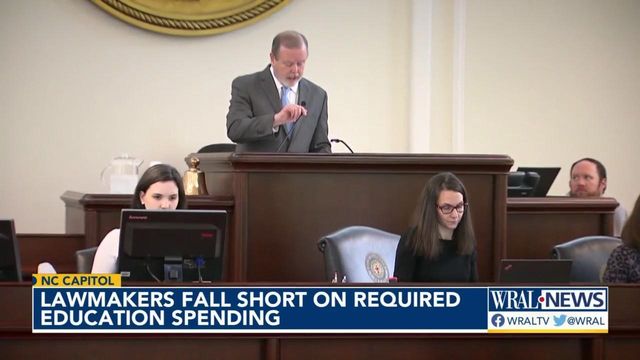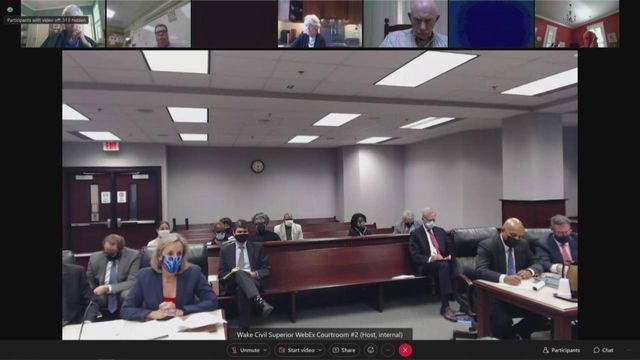State budget falls well short of Leandro order
Republican legislative leaders say the newly-enacted budget spends more on education than ever before. It's now up to a judge to decide whether that's enough to ensure the constitutional rights of low-income and at-risk students.
Posted — UpdatedThe Leandro lawsuit, first filed in 1994 by families in five low-wealth counties and those counties’ school boards against the state, alleges that schools weren’t sufficiently funded. Two North Carolina Supreme Court rulings favored the plaintiffs. The second ruling came in 2004, when the court ordered the state to remedy its shortcomings, while giving sufficient deference to the General Assembly to do so.
On Nov. 10, Superior Court Judge David Lee ordered the state to turn over $1.7 billion in surplus funds to three state agencies tasked with carrying out the remedial plan. Lee stayed that order for 30 days to allow lawmakers to take action on their own that would make his order unnecessary.
However, even with a state surplus of around $8 billion, more than four times the sum needed, lawmakers still didn't meet the target. Senate Republican leaders say their Leandro-related spending in the budget was $933 million over the biennium, well short of the $1.7 billion ordered.
An analysis by the nonpartisan Public School Forum agrees that this year’s budget funds only about half of the needs outlined in the Leandro plan.
Forum director Mary Ann Wolf said the budget does spend more on teacher supplements, school psychologists and other support personnel. But overall, she said, it’s a missed opportunity.
"We're getting there, but certainly not enough," Wolf said. "We need to acknowledge that this is the beginning of an eight-year plan, and so, if we start out this far behind when we have a surplus, we're certainly concerned about what comes next."
Wolf is specifically worried about equally historic tax cuts in the new budget. They'll mean less revenue available over the next few years as the remedial plan is implemented and more funding is required.
"Our worry is that when it comes time to continue to need to increase those and sustain and make sure those are recurring investments, we're worried there won't be the funding there," she said.
It’s unclear what Lee will decide to do about the order, set to take effect Dec. 10.
Attorney David Hinojosa, who represents the Charlotte-Mecklenburg NAACP, a plaintiff-intervenor in the Leandro case, said the judge could order the state to release the balance of the $1.7 billion that doesn't appear in the budget plan.
If the state doesn’t comply, Hinojosa said he hopes Lee will take further action.
"The comprehensive remedial plan is not a pie-in-the-sky plan," Hinojosa told WRAL News. "It's not everything that children actually need, but it is a very comprehensive set of actions that need to be taken."
"These are actions that needed to be done yesterday, and they're still not being done today. And we can't wait till tomorrow," he added.
Legislators left nearly $2.5 billion unspent in the new budget, so money is still available to fulfill the original order.
Senate President Pro Tem Phil Berger's spokesman, Pat Ryan, said most of the unspent balance would be spent in the second year of the biennial budget. However, legislators do routinely adjust their spending in the second year of the budget cycle.
GOP leaders say the judge can’t order them to spend money, and they say the plan is too expensive.
Sen. Deanna Ballard, R-Watauga, said in a statement that legislators have chosen instead to invest in school choice.
"Judge Lee wishes to steal $1.7 billion from the state treasury to shower yet more money on an education bureaucracy that’s been demanding more and more money for decades without results to show for it," Ballard said in a statement. "The future of education in this state will be decided by parents through their elected legislators, not an unelected county-level trial judge."
Related Topics
• Credits
Copyright 2024 by Capitol Broadcasting Company. All rights reserved. This material may not be published, broadcast, rewritten or redistributed.






